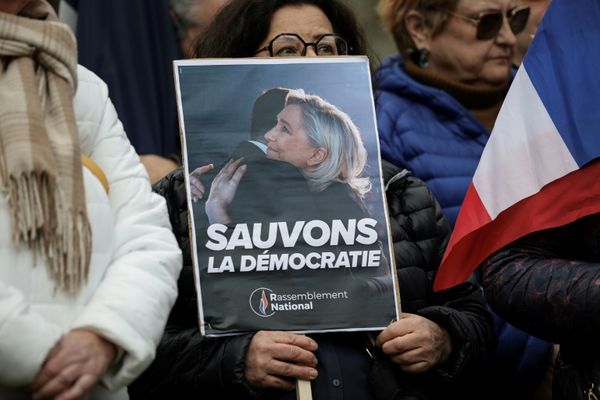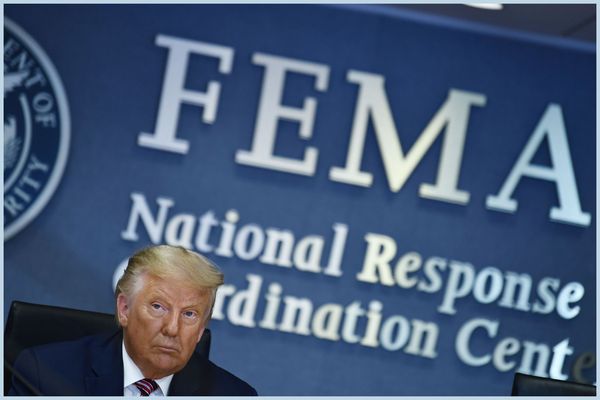
Uncertainty hangs over the planned visit to the Zaporizhzhia nuclear plant by a team from the UN nuclear watchdog, as inspectors arrived in Ukrainian-controlled Zaporizhzhia city on Wednesday, where they are likely to spend the night before crossing the frontline.
The International Atomic Energy Agency mission into Russian-controlled territory, which comprises representatives from countries deemed neutral by both sides, was reportedly intended to last four days.
But on Wednesday, the Russian-occupying authorities said the IAEA would be given access for one day. They also said the mission would be expected to join the queue of civilians who cross back and forth between territory controlled by Ukraine and Russia. If that happens, it could delay or disrupt the visit.
These potential obstacles come in addition to safety concerns. Ukraine and Russia have given their security guarantees for the mission to travel to the plant and the neighbouring areas, Rafael Grossi, the head of the agency, said before leaving Kyiv.
A spokesperson for Ukraine’s foreign ministry, Oleh Nikolenko, wrote on Facebook that Russia must not obstruct the mission’s work at the plant.
The facility and the surrounding towns continue to come under shelling. Last week, fighting in and around Europe’s largest nuclear plant damaged vital electricity supplies prompting global concern.
Grossi described the mission as “very complex”
“We are going to a war zone,” he said. “We are going to occupied territory. And this requires explicit guarantees from not only from the Russians but also from the Republic of Ukraine.”
Upon arriving in Zaporizhzhia, Grossi said he and his team were there to conduct a “technical mission” to prevent a nuclear accident.
The city council building in the plant’s satellite town of Enerhodar was shelled overnight, according to its mayor-in-exile, Dmytro Orlov. On Monday, the plant, Enerhodar and the nearby Ukrainian-controlled town of Nikopol came under heavy shelling.
Grossi said he hoped to establish a permanent mission in Ukraine to monitor the plant.
Russia’s representative to the IAEA, Mikhail Ulyanov, said Russia would welcome the establishment of a permanent mission on Wednesday.
Ukraine’s energy minister, Herman Halushchenko, said it was important for the mission to speak to the plant’s staff and “get the real information, not Russian information”, on what was going on inside the facility.
The Wall Street Journal reported on Monday that the mission would spend four days at the plant. But on Wednesday, Yevgeny Balitsky, the head of the Russian-installed Zaporizhzhia administration, a Russian-appointed official, was quoted by the Russian news agency Interfax as saying the delegates would be given only one day at the facility.
Adding to the suspense, a member of the Russian-controlled Zaporizhzhia administration said the mission would not be given priority and would have to wait in a queue to cross the frontline into the occupied part of Zaporizhzhia province.
“The IAEA mission will stand in line to get to the liberated part of the Zaporizhzhia region. This is due to the fact that they will not be issued special passes,” Volodymyr Rogov wrote on Telegram. He wrote that the IAEA could access the plant more easily if they came through Russia.
The Zaporizhzhia plant, captured by Russian troops in March but run by Ukrainian staff, is located in a hotspot of a conflict that has settled into a war of attrition fought mainly in eastern and southern Ukraine six months after Russia launched its invasion.
Russia and Ukraine have traded blame over attacks on and near the plant. Ukraine claims the attacks are false-flag operations carried out by Russia to damage the image of the Ukrainian army; Russia says the attacks are being conducted by Ukraine.
The world was on edge last week when fighting cut off electricity supplies to the plant, disconnecting it from the grid for the first time. The plant needs electricity for its cooling rods and security systems.
Ukraine’s president, Volodymyr Zelenskiy, said the world narrowly avoided a “radiation disaster”. A backup electricity supply line kicked in and the plant escaped dangerous overheating.
Russia has been poised to hold referendums in the occupied Zaporizhzhia and Kherson regions for several months, but battles and attacks continue in the area.
Ukrainian forces frequently attack deep inside the occupied territories using western-supplied long-range rockets, and Russian-appointed officials have been targeted in a string of assassinations.
Ukraine says it is now conducting offensives with the aim of recapturing the neighbouring Kherson region, which was occupied by Russia at the beginning of the invasion.
Ukraine’s military have not released details or evidence of the alleged offensive. Citing Ukrainian and western sources, the Financial Times reported at least part of the aim was to scare Russian troops into fleeing as Ukraine was short of artillery required for a ground offensive.
Yuriy Sobolevskyi, the deputy head of Kherson’s regional council, told Ukrainian TV the offensive had been successful in three places in the districts of Kherson, Beryslav, and Kakhovka but declined to give further details.
Meanwhile, Russia’s defence ministry said Ukraine’s offensive had failed along the Mykolaiv-Kriviy Rih frontline. Russia says it shot down three Ukrainian helicopters and that Ukraine had lost four fighter jets during the fighting.
Russia is using the Zaporizhzhia nuclear plant as a military base. Ukraine, the US and the UN have called for the facility to be demilitarised. Russia said there were no “ongoing discussions” about demilitarisation, Russia’s Tass news agency reported, citing the Kremlin spokesperson, Dmitry Peskov.
Ukraine’s energy minister, German Galushchenko, said Kyiv was seeking international assistance to try to demilitarise the area.
“We think the mission should be a very important step to return the plant to Ukrainian government control by the end of the year,” he told the Associated Press. “We have information that they are now trying to hide their military presence, so they should check all of this.”
The European Union’s foreign affairs representative, Josep Borrell, told the Ukrainian news agency Ukrinform he hoped the mission would be successful. Speaking at an informal meeting of the EU’s foreign ministers, Borrell criticised Russia for “playing games” with nuclear security and called for the plant to be demilitarised.
The US has called for the plant to be shut down. “We continue to believe that a controlled shutdown of the Zaporizhzhia nuclear reactors would be the safest and least risky option in the near-term,” said the White House national security council spokesperson, John Kirby.
Agencies contributed to this report







